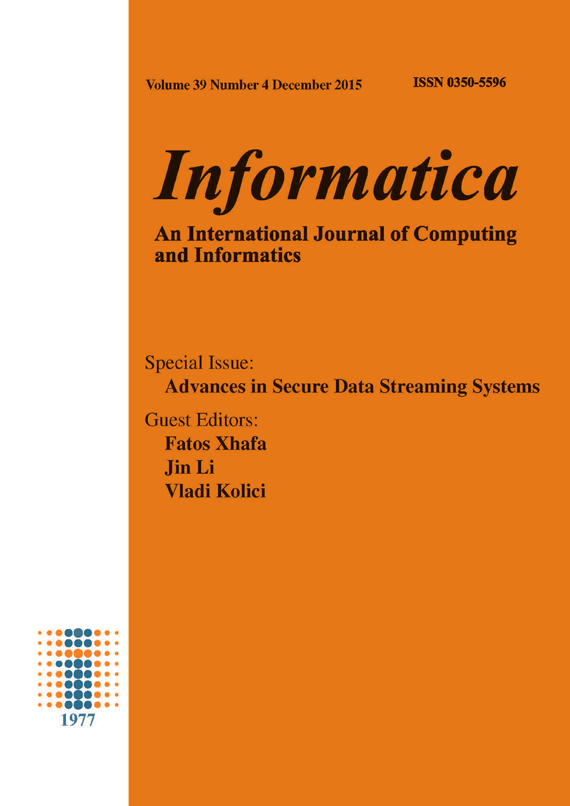Design and Implementation of Advanced Bayesian Networks with Comparative Probability
Abstract
This paper summarizes the major findings, methods, and background theories of the doctoral thesis in [1]. The aim of the thesis has been to enhance the current procedures of designing decision support systems (DSSs) used by decision-makers to comprehend the current situation better in cases where the available amount of information required to make an informed decision is limited. The research resulted in a new innovated theory that combines the philosophical comparative approach to probability, the frequency interpretation of probability, dynamic Bayesian networks and the expected utility theory. It enables engineers to write self-learning algorithms that use example of behaviours to model situations, evaluate and make decisions, diagnose problems, and/or find the most probable consequences in real-time. The new theory was particularly applied to the problems of validating equipment readings in an aircraft, flight data analysis, prediction of passengers behaviours, and real-time monitoring and prediction of patients’ states in intensive care units (ICU). The algorithm was able to pinpoint the faulty equipment from between a group of equipment giving false fault indications, an important improvement over the current fault detection procedures. On the ICU application side, the algorithm was able to predict those patients with high mortality risk about 24 hours before they actually deceased.References
Ali Hilal Ali, “Design and Implementation of Advanced Bayesian Networks with Comparative Probability” Ph.D. dissertation, Lancaster University, 2012.
Russel, S., and Norving, P. “Artificial Intelligence: A Modern Approach”. New Jersey: Pearson Education, Inc., 2010.
Downloads
Published
How to Cite
Issue
Section
License
Authors retain copyright in their work. By submitting to and publishing with Informatica, authors grant the publisher (Slovene Society Informatika) the non-exclusive right to publish, reproduce, and distribute the article and to identify itself as the original publisher.
All articles are published under the Creative Commons Attribution license CC BY 3.0. Under this license, others may share and adapt the work for any purpose, provided appropriate credit is given and changes (if any) are indicated.
Authors may deposit and share the submitted version, accepted manuscript, and published version, provided the original publication in Informatica is properly cited.









